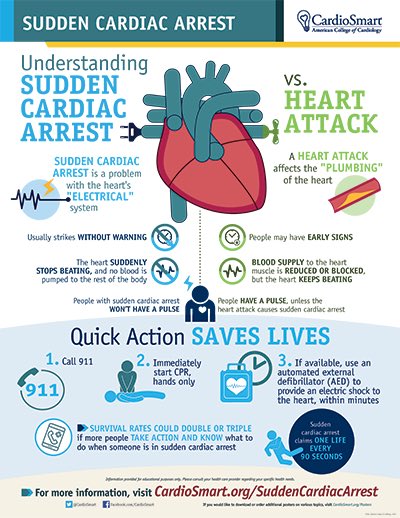
Thread on #ChristianEriksen Based on the tv coverage it is likely that Eriksen went into Ventricular Tachycardia/Fibrillation. This is a fast, irregular and highly unorganized electrical rhythm of the heart that precedes a cardiac arrest.
Fortunately his team and the ref quickly alerted the medical staff and ACLS protocols were initiated. On tv we saw CPR and an AED being used, the latter of which was used to “shock” his heart back into a normal rhythm.
It highlights the importance of having AEDs available and accessible in public areas and where athletic competition takes place, they are life saving.
Eriksen now starts his journey as a heart patient as his medical team will work to identify the causes, reversible and irreversible, of his arrest. Fortunately he is alive and at the end of the day that is what is most important.
The hope for all our patients is the same, to allow them to be able to do the things they enjoy and spend time with those they love.
For those who want more medical detail the cause of his arrhythmia now needs to be determined. He will undergo a battery of tests to rule out structural heart disease, electrical abnormalities, electrolyte abnormalities, ischemia etc etc. Happy to answer questions.
There are differences between a cardiac arrest and a heart attack. This graphic from @CardioSmart highlights them 

Here is a guide courtesy of the @American_Heart on how to do CPR on adults, children, infants and even pets. Learn it, it could safe a life #ChristianEriksen 

Eriksen’s doctor confirmed some of the initial fears, he had a cardiac arrest that required an AED...”He was gone, and we did cardiac resuscitation. It was a cardiac arrest," Boesen said.
"We got him back after one defibrillator.”#Eriksen #ChristianEricksen #EURO2020
"We got him back after one defibrillator.”#Eriksen #ChristianEricksen #EURO2020
• • •
Missing some Tweet in this thread? You can try to
force a refresh




